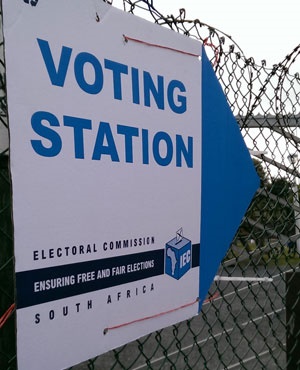
That the commission may have to run next year’s elections with three commissioners who lack experience is a red flag, write Janine Ogle and Lawson Naidoo
It is quite possible that the Electoral Commission of SA (IEC) will conduct the 2019 national and provincial elections with a team of commissioners that will have no experience of overseeing a process that underpins our democracy.
Universal adult suffrage, a national common voters’ roll and regular elections are some of the foundational values in our constitutional democracy.
That the IEC may have to manage next year’s elections with only two commissioners that have been responsible for one local government election, and three new commissioners with no experience of managing an election at all, should be a red flag for all South Africans.
Chief Justice Mogoeng Mogoeng has issued a call for nominations to fill three vacancies that will arise in the IEC this year – IEC vice-chairperson and its longest-serving member Terry Tselane’s second and last term ends in November and is not renewable; Judge Thami Makhanya and Reverend Bongani Finca’s first terms will expire in April and November respectively.
The remaining two commissioners are chairperson Glen Mashinini and Janet Love, appointed in 2015 and 2016.
While Makhanya and Finca are eligible for reappointment, they will have to go through the whole process along with other nominees if they wish to serve the second of two seven-year terms in office.
They may either not be nominated or fail to secure a recommendation for appointment.
The chief justice is to be commended for starting the appointment process early.
This should allow for appointment to take effect soon after vacancies arise, assuming Parliament and President Cyril Ramaphosa exercise their responsibilities in this process diligently.
Even if there is only one “new” commissioner, there will only be a few months to get to grips with the job before the elections, which are likely to take place in April or May 2019.
It remains a possibility that three commissioners will still be undergoing orientation as preparations for elections intensify early next year.
The start of political party campaigning for the next elections necessitates that we focus on the organisation tasked with administering free and fair elections and assess its state of readiness. The IEC is a chapter 9 institution, whose independence is grounded in the Constitution. In addition to its five commissioners, who are accountable to Parliament for the organisation, its senior management comprises a chief electoral officer (CEO) who, together with three deputy CEOs, is responsible for the execution of the IEC’s tasks.
In this regard, we need to pay attention to the current staff vacancies within the IEC. CEO Sy Mamabolo had his appointment confirmed late last year, having been acting in the post since the departure of former CEO Mosotho Moepya in March 2017.
However, of the three deputy CEO posts, two remain vacant – that of deputy CEO for corporate services and the deputy CEO of electoral operations.
It is widely anticipated that the general elections will be the most closely contested since 1994. The IEC’s role in ensuring that the Electoral Code of Conduct is respected cannot be overstated. We as the public and civil society must be vigilant in ensuring that this is so.
Concerns stem not only from whether a commission with limited experience will be able to respond to the challenges that a closely contested campaign will bring, but also from attempts to undermine that institution from political parties themselves.
During a discussion on “political parties and democracy” hosted by The Big Debate last month, DA MP Natasha Mazzone raised concerns about the independence of the IEC.
While something of an unsung hero among chapter 9 bodies due to its consistency in delivering credible, free and fair elections since 1994, it has suffered some reputational damage since the Public Protector’s report into the lease agreement for the IEC’s head office was made public in 2013.
It led to the departure of former chairperson Pansy Tlakula. Moepya left before a disciplinary process into his role in the scandal could be conducted.
Despite this, the IEC’s reputation remains intact and we must ensure that its capacity is strengthened.
That is why the call for nominations to fill commissioner vacancies is highlighted.
Civil society organisations must encourage suitably qualified candidates to apply, or ensure they are nominated, and they need to monitor the appointment process carefully.
It is critical to ensure that candidates will enhance the effectiveness and the stature of the organisation. Nominations close on March 31.
There is not much time left to get those nominations in.
All of us concerned about the just and peaceful transition from the fifth to the sixth national and provincial administrations should remain vigilant.
Ogle is the national coordinator for My Vote Counts. Naidoo is executive secretary of the Council for the Advancement of the SA Constitution




 Publications
Publications
 Partners
Partners








